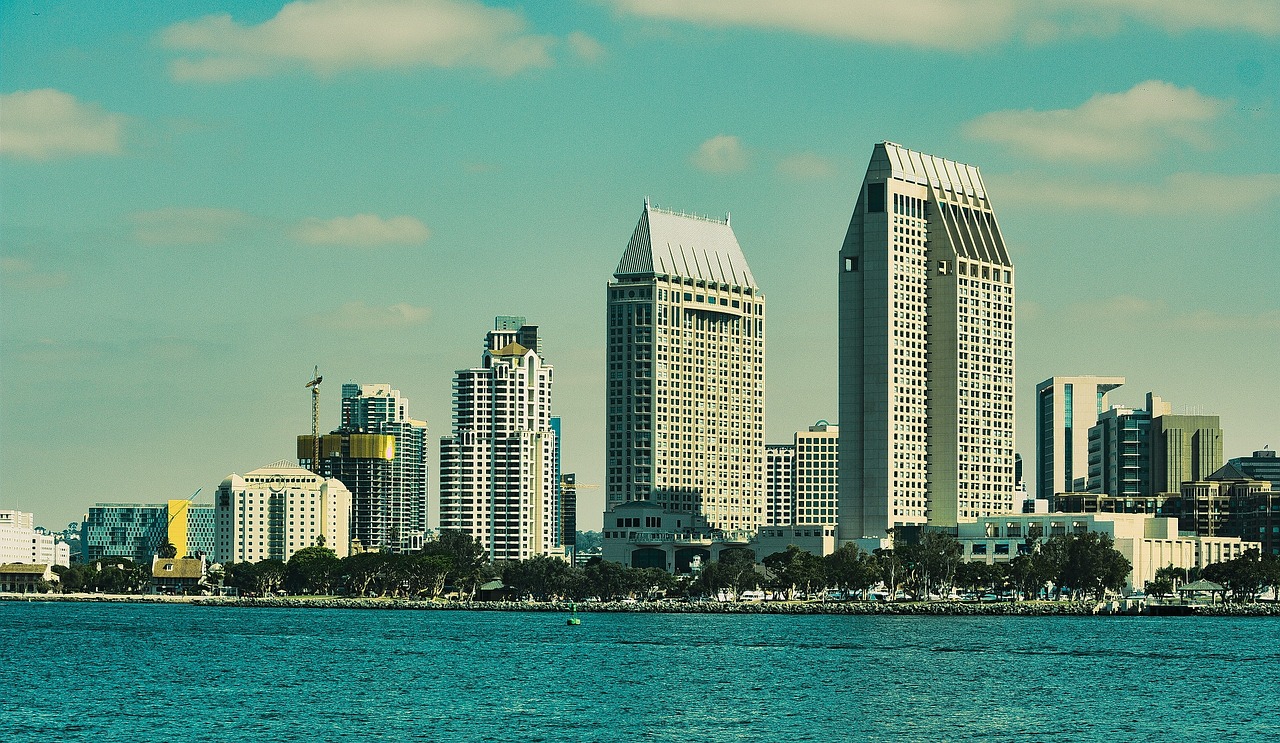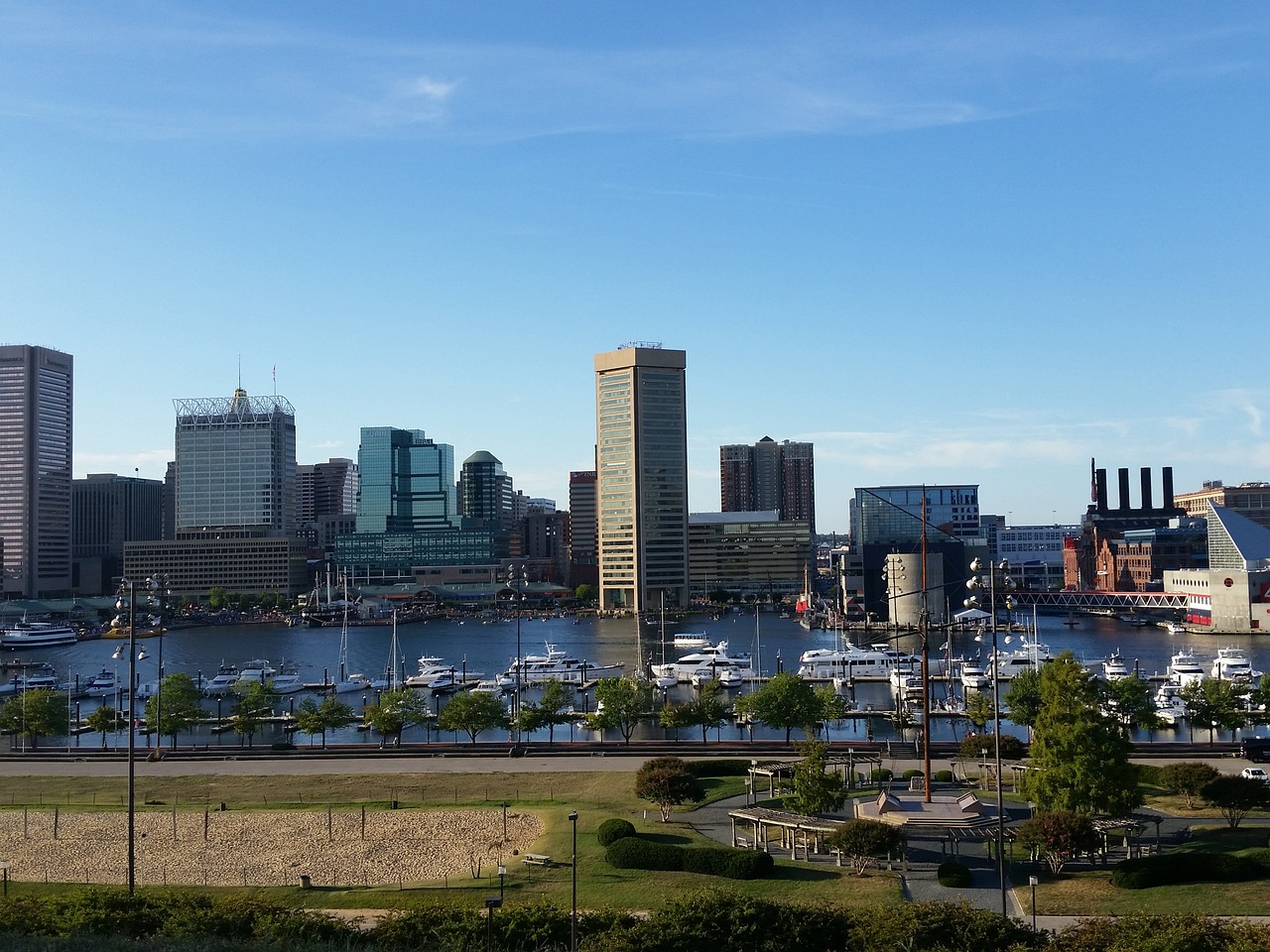Zero waste cities are becoming increasingly popular as the world becomes more aware of the environmental impacts of waste and the importance of sustainable urban development. The zero waste movement is focused on reducing the amount of waste that is sent to landfills and incinerators by implementing strategies such as recycling, composting, and reducing single-use products.

Cities around the world are adopting zero waste policies to reduce their environmental footprint and promote economic development. The top 15 zero waste cities have made significant progress in reducing waste and increasing recycling rates. These cities have implemented a range of strategies, such as banning single-use plastics and promoting composting, to achieve their goals.
Key Takeaways:
- Zero waste cities are focused on reducing the amount of waste sent to landfills and incinerators.
- Top zero waste cities have implemented a range of strategies, such as banning single-use plastics and promoting composting, to reduce waste and increase recycling rates.
- Zero waste policies promote sustainable urban development and economic growth.
Table of Contents
Table of Contents
Top 15 Zero Waste Cities
Here are 15 cities that are leading the way in zero waste initiatives. Each city has its unique approach to achieving zero waste goals, and they all share a common commitment to reducing waste and preserving valuable resources.
1. San Francisco, CA

San Francisco stands out as a pioneering city in the United States, having set a zero waste goal back in 2002. This ambitious city has consistently led the way in the zero waste movement, showcasing a deep commitment to sustainability. A key part of its strategy is the comprehensive composting ordinance, a groundbreaking initiative by the city council that has significantly cut down food waste. This aligns perfectly with the objectives of the Zero Waste International Alliance.
The city’s approach to managing resources goes beyond just reducing waste. It actively promotes a circular economy, where materials are reused and recycled, minimizing waste and environmental impact. This innovative strategy is a crucial part of San Francisco’s fight against climate change, showcasing how waste management can contribute to environmental stewardship.
San Francisco’s zero waste plan is not just a policy; it’s a clear demonstration of the city’s unwavering dedication to building a sustainable future. Its success and ongoing efforts have made San Francisco a global example, inspiring other cities to follow in its footsteps towards sustainability.
2. Seattle, WA

Seattle is a city committed to environmental sustainability, with a bold vision to become a zero-waste city by 2030. The city has adopted a comprehensive solid waste management plan, “Seattle’s 2022 Solid Waste Plan Update: Moving Upstream to Zero Waste.”
This plan reflects Seattle’s decades-long leadership in solid waste management and its zero-waste vision, supported by public enthusiasm for environmentally progressive programs. The city’s approach focuses on the entire life cycle of materials, aiming to eliminate waste and toxins, prevent pollution, reduce carbon emissions, and conserve natural resources as early as possible. Central to this vision is the concept of waste prevention, prioritizing it in solid waste system planning to address the root causes of waste and reduce health and environmental impacts.
Seattle’s zero-waste initiatives include innovative solutions like anaerobic digestion to convert organic waste into energy and a ban on single-use plastic utensils and straws. The city’s high waste diversion rates and adoption of best practices in waste management demonstrate its commitment to achieving zero-waste goals. Seattle’s efforts not only address environmental impacts but also foster a culture of sustainability among its residents, positioning it as a beacon of eco-conscious urban living.
3. Austin, TX

Austin, Texas, is on a determined path to achieve zero waste by 2040. The city’s zero waste goal is a bold initiative led by the city government, aiming to drastically reduce the amount of trash sent to landfills. Austin Resource Recovery, the city’s department dedicated to this mission, is working towards reducing landfill contribution by 90%.
Their strategy encompasses a broad spectrum of activities, including comprehensive recycling, composting, and waste reduction programs. A key focus is on managing organic waste effectively, which forms a significant part of the waste stream. Austin’s plan is not just about waste management; it’s about fostering a culture of sustainability and responsible living among its residents.
The city’s approach to zero waste is multifaceted, involving community participation, innovative waste management solutions, and educational initiatives. These efforts reflect Austin’s commitment to sustainable living and environmental conservation, positioning it as a leading example for cities globally in achieving zero waste objectives. Austin’s journey towards a zero waste future is a testament to its dedication to creating a greener, more sustainable urban environment.
4. Portland, OR

Portland, Oregon, is on a mission to become a zero-waste city, aiming to recover 90% of waste from city operations by 2030. Currently, the city boasts an impressive waste recovery rate of 81%, thanks to its robust recycling and composting programs. These efforts are particularly focused on reducing landfill waste, especially organic waste.
In most city facilities, extensive composting of food waste and yard debris is practiced, significantly cutting down on garbage. For example, the Portland Bureau of Transportation’s Sunderland Yard alone composts and recycles over 30,000 cubic yards of leaf material each year. Moreover, Portland’s Fire and Rescue is a leader in sustainability, with 31 locations certified for their comprehensive sustainability practices, including recycling and composting.
Portland is also exploring new recycling streams for items like plastic pipe and worn uniforms to meet its ambitious waste recovery goal. The city holds regular meetings with waste hauling contractors to enhance recycling strategies and recommit bureaus to waste recovery efforts. Additionally, Portland is proactive in reusing microelectronics, recycling or donating over 35,000 pounds of electronics annually.
At its core, Portland’s commitment to zero waste is about fostering a sustainable culture among its residents. The city’s comprehensive waste management efforts are integral to its broader strategy for sustainable urban living and planning, setting a precedent for eco-conscious development.
5. Minneapolis, MN

Minneapolis is recognized as a regional and national leader in waste reduction and recycling, striving to reduce and eventually eliminate waste sent to landfills or waste-to-energy facilities. The city’s ambitious goals include achieving 50% recycling and organics recycling (composting) by 2020 and 80% by 2030. The Zero Waste Plan, adopted by the City Council in December 2017, focuses on educating residents and businesses, creating new opportunities to reduce waste, and increasing recycling. This plan is part of Minneapolis’ commitment to being better stewards of the environment, growing the economy, and advancing environmental justice. The city’s approach to waste management is not just about minimizing waste but also enhancing the quality of life for its residents, making it a leader in environmental innovation.
Minneapolis has set a goal of achieving zero waste by 2040. The city’s journey towards this ambitious target is marked by significant strides in waste reduction initiatives, particularly focusing on organic waste management. Minneapolis’ zero waste plan reflects its strong commitment to sustainable living, positioning it as a standout city in the United States for environmental conservation. The local level engagement and innovative strategies, such as food scraps recycling, have established Minneapolis as a leader in environmental innovation and a model for other cities aiming for zero waste.
6. Boulder, CO

Boulder, Colorado, has been actively working towards its ambitious goal of achieving zero waste by 2025. This commitment is rooted in the city’s Zero Waste Action Plan, adopted in 2010, which outlines a comprehensive strategy to significantly decrease greenhouse gas emissions and increase waste diversion. The plan was a response to Resolution 2005-138, which set Boulder County on a path to reach “Zero Waste – or darn near” by 2025, including unincorporated areas.
The Zero Waste chapter of Boulder’s Environmental Sustainability Plan, adopted in 2012, further specifies targets and strategies to meet both internal and external zero waste goals established in the Resolution and Action Plan. Boulder County’s purchasing policy requires bidders and vendors to meet several “Zero-Waste” standards to qualify for county contracts and purchases. Additionally, all county offices are equipped with recycle and compost bins, and employees are encouraged to recycle electronic wastes, use rechargeable batteries, and responsibly dispose of hazardous wastes.
Boulder’s approach to zero waste emphasizes reducing, reusing, recycling, and composting to minimize pollution, conserve energy and resources, and provide economic opportunities in resale and reusable materials. This holistic approach not only addresses waste management but also integrates sustainability into the broader context of urban development and community lifestyle.
7. Los Angeles, CA

Los Angeles is revolutionizing waste management with the Solid Waste Integrated Resources Plan (SWIRP), a visionary Zero Waste Master Plan. Developed by the Department of Public Works, Bureau of Sanitation, SWIRP is a 20-year strategy designed to guide Los Angeles towards a sustainable, zero-waste future by 2030. This comprehensive plan focuses on reducing waste generation, enhancing recycling efforts, and innovating in resource recovery.
SWIRP encompasses a wide array of initiatives, including the prevention of waste generation, the transformation of waste into resources, and the conversion of sanitation fleet vehicles to renewable fuels. The plan’s success relies heavily on active stakeholder participation, ensuring that sustainability, resource conservation, and environmental protection are at the forefront. The implementation of SWIRP involves several phases, starting with the development of guiding principles and followed by detailed plans for facilities, environmental impact, finance, and strategy. This holistic approach positions Los Angeles as a leader in environmental sustainability and a model for urban waste management.
8. San Diego, CA

San Diego is actively working towards becoming a zero-waste city by 2040. The city’s Zero Waste Plan focuses on diverting all solid waste from landfills. A key component of this plan is the transformation of landfill gases into energy. San Diego’s recycling programs play a crucial role in waste diversion, with the Miramar Landfill featuring a Resource Recovery Center to maximize waste reuse. The city also emphasizes curbside recycling and greenery collection.
City Goals include:
- By 2020: Divert 75% of the city’s trash and ensure 100% continuous operation of landfill gas collection systems.
- By 2035: Increase diversion to 90%, maintain landfill gas collection, and capture 98% of methane gas from wastewater treatment.
- By 2040: Achieve 100% waste diversion.
Residents are encouraged to sort their trash correctly to aid these efforts. The city also boasts The Greenery, a resource recovery park that composts food scraps, converts green waste into landscape products, and turns decomposition byproducts into energy.
9. New York City, NY

New York City is actively working towards its zero waste goals with several initiatives. One initiative is the Zero Waste Pledge, which encourages residents to commit to a greener lifestyle. This pledge involves actions like donating unused clothes, separating food scraps for compost, and recycling electronic devices. By participating in this pledge, residents contribute to creating a more sustainable city for future generations. Additionally, those who sign up for the pledge receive a free Zero Waste reusable bag, further promoting the practice of reducing, reusing, and recycling in daily life.
New York City’s Zero Waste Pledge reflects the city’s dedication to reducing its environmental footprint and fostering sustainable urban living. The city’s efforts are not just about managing waste effectively but also about transforming the mindset of its residents towards a more eco-conscious lifestyle. This initiative is a step towards making New York City a global leader in sustainability and setting a precedent for other cities to follow in sustainable urban planning and development.
10. Denver, CO

Denver is making significant strides towards its zero waste goals with the innovative “Waste No More” ordinance. This landmark legislation requires apartment complexes, restaurants, office buildings, and other businesses in Denver to provide essential recycling and composting services. This ordinance is a key component of Denver’s comprehensive strategy to reduce waste and promote sustainability.
To ensure the effective implementation of the “Waste No More” ordinance, the city has established a dedicated task force. This team is responsible for enforcing the ordinance and providing clarity on its requirements, demonstrating Denver’s commitment to proactive environmental management.
Denver’s focus on increasing recycling and composting rates is a crucial part of its journey to becoming a zero waste city. By reducing the amount of waste sent to landfills, Denver is not only addressing immediate environmental concerns but also setting a precedent for future urban planning and sustainable development.
11. Boston, MA

Boston is on a transformative journey towards sustainability with its ambitious Zero Waste Boston initiative. Launched in 2018, the city aims to become a zero-waste city by reducing, reusing, recycling, and composting at least 80 to 90 percent of its solid waste. This initiative is a significant step in cutting down disposal in landfills or incinerators.
The Zero Waste Advisory Committee plays a pivotal role, recommending strategies under four key categories: Reduce and Reuse, Recycle More, Increase Composting, and Inspire Innovation. These recommendations are part of Boston’s broader commitment to environmental sustainability and carbon reduction.
In 2017, Boston’s waste sector emitted an estimated 393 kilotons of carbon, primarily from waste incineration. The city’s businesses and institutions generate the majority of municipal solid waste. The Carbon Free Boston Report highlights that a 90 percent diversion rate could reduce waste emissions by 78 percent relative to 2017. This ambitious goal is aligned with the city’s economic and population growth, aiming for an 80 percent increase in waste diversion to recycling and composting by 2030.
Through these efforts, Boston is not just addressing waste management but is also setting a precedent for future urban planning and sustainable development. The city’s initiatives contribute significantly to a broader goal of sustainable urban living, making Boston a model for other cities aiming for zero waste.
12. Philadelphia, PA

Philadelphia is on a mission to achieve zero waste by 2035, showcasing a strong commitment to sustainability and environmental responsibility. The city’s initiatives focus on significant food waste reduction and adopting effective waste management practices, inspired by the successful San Francisco model.
Key efforts include Clean PHL, an educational and engagement platform for local waste reduction, and the Philadelphia Zero Waste Partnership Program, which encourages sustainable business practices. The city established the Zero Waste and Litter Cabinet in 2016, aiming to reduce landfill waste and tackle issues of litter and food waste. This cabinet, along with the Office of Sustainability, is working towards eight core visions, including achieving zero waste and fostering climate-prepared communities.
Philadelphia’s approach to zero waste includes various initiatives like the Municipal Building Waste Audit Programs and the Community Composting Network. Policies such as the Plastic Bag Ban further support the city’s zero waste goals. These comprehensive efforts not only address immediate environmental concerns but also promote a culture of sustainability among residents, positioning Philadelphia as a beacon of eco-conscious urban living.
13. Baltimore, MD

Baltimore is ambitiously working towards a 90% waste diversion rate by 2040, as outlined in its “Fair Development Plan for Zero Waste.” This goal aligns with the city’s broader vision for sustainable urban development and a circular economy.
Central to Baltimore’s strategy is the adoption of the Zero Waste International Alliance guidelines, which focus on maximizing recycling, minimizing waste, reducing consumption, and ensuring that products are made to be reused, repaired, or recycled back into nature or the marketplace. The city’s Baltimore Sustainability Plan also plays a crucial role in this journey, emphasizing the reduction of waste generation and the promotion of recycling and composting.
Baltimore’s initiatives include expanding recycling programs, enhancing waste collection efficiency, and educating residents about sustainable waste practices. The city is also exploring innovative solutions like anaerobic digestion facilities for organic waste, which can convert waste into energy, and community composting programs to manage food scraps more sustainably.
By focusing on comprehensive waste reduction strategies and responsible resource management, Baltimore is not just addressing immediate environmental concerns but also enhancing the overall quality of life for its residents. The city’s efforts demonstrate a strong commitment to creating a sustainable, zero-waste future.
14. Chicago, IL

Chicago is actively pursuing a long-term goal of achieving zero waste, demonstrating a strong commitment to sustainable waste management. The city is currently engaged in comprehensive studies to accurately measure and enhance its waste diversion rates, a key step in this ambitious journey.
Central to Chicago’s strategy is the implementation of innovative waste reduction and recycling initiatives. These efforts are designed to minimize waste generation and maximize recycling and reuse of materials. The city is exploring various approaches, including expanding recycling programs, enhancing waste collection efficiency, and educating residents about sustainable waste practices.
A significant aspect of Chicago’s approach is the emphasis on public participation in waste management. The city encourages residents to actively engage in recycling and composting, fostering a culture of environmental responsibility. This community involvement is crucial for the success of Chicago’s zero waste initiatives.
By adopting these policies and practices, Chicago is not only addressing immediate environmental concerns but also contributing to a broader goal of sustainable urban living. The city’s efforts in environmental conservation and eco-friendly urban living are setting a precedent for other cities aiming to achieve zero waste.
15. Houston, TX

Final Thoughts on the Top Zero Waste Cities

Recap of the Importance of Zero Waste Cities
The concept of zero waste cities is gaining traction globally, with many cities setting ambitious targets to reduce their waste and divert it from landfills. This is an important step towards a more sustainable future, as waste management is a significant contributor to greenhouse gas emissions and environmental degradation.
By setting zero waste targets and implementing best practices, cities can reduce their environmental impact and save resources. For example, many cities are implementing composting programs for food scraps, which can significantly reduce the amount of waste sent to landfills while also creating valuable soil amendments for local agriculture.
The Role of Cities in Global Sustainability
Cities play a crucial role in global sustainability efforts, as they are responsible for a significant portion of global greenhouse gas emissions and resource consumption. By implementing zero waste policies and practices, cities can reduce their environmental impact and lead the way towards a more sustainable future.
Some of the top zero waste cities in the world include New York City, Bogotá, and Taipei. These cities have set ambitious targets and implemented innovative waste management programs to reduce their waste and divert it from landfills. For example, New York City aims to reduce disposal volumes by 90% and send zero waste to landfills by 2030, while Bogotá has banned the use of plastic bags and has a staggering 176 flea markets open in the town.
Zero waste cities are an important step towards a more sustainable future. By setting ambitious targets and implementing best practices, cities can reduce their environmental impact and lead the way towards a more sustainable future for all.
Frequently Asked Questions
How can a city implement a successful zero waste program?
Implementing a successful zero waste program requires a coordinated effort from all stakeholders, including government agencies, local businesses, and residents. The key components of a successful zero waste program include waste reduction, recycling, and composting. Cities can also promote the use of reusable products, such as shopping bags and water bottles, and encourage the adoption of sustainable practices, such as energy-efficient lighting and transportation.
What are some examples of zero waste communities around the world?
There are several cities around the world that have successfully implemented zero waste programs, such as Kamikatsu in Japan, Ljubljana in Slovenia, and San Francisco in the United States. These cities have achieved impressive waste diversion rates through a combination of waste reduction, recycling, and composting programs, as well as innovative initiatives like the “Fantastic Three” program in San Francisco, which focuses on reducing food waste, recyclables, and hazardous waste.
Which cities in the USA have adopted zero waste policies?
Several cities in the USA have adopted zero waste policies, including San Francisco, Seattle, Boulder, and Austin. These cities have set ambitious goals to reduce waste and increase recycling, and have implemented a range of programs and policies to achieve these goals. For example, San Francisco has a goal of zero waste by 2020, and has implemented a comprehensive program that includes mandatory recycling and composting, as well as a ban on plastic bags and other single-use items.
What are the key components of the Zero Waste Cities Certification?
The Zero Waste Cities Certification is a program that recognizes cities that have achieved high levels of waste reduction and diversion. The key components of the certification include waste reduction, recycling, composting, and education and outreach. Cities must demonstrate a commitment to these components through specific actions, such as implementing mandatory recycling and composting programs, promoting the use of reusable products, and engaging residents and businesses in waste reduction efforts.
How do European cities approach zero waste initiatives?
European cities have been at the forefront of zero waste initiatives, with many cities setting ambitious goals to reduce waste and increase recycling. These cities have implemented a range of programs and policies, including mandatory recycling and composting, extended producer responsibility, and pay-as-you-throw schemes. European cities also place a strong emphasis on waste reduction and reuse, and have implemented programs to promote the use of reusable products and reduce the amount of waste generated in the first place.
What strategies are employed by zero waste cities to manage different types of waste?
Zero waste cities employ a range of strategies to manage different types of waste, including organic waste, recyclables, and hazardous waste. For organic waste, cities implement composting programs and encourage the use of compostable products. As for recyclables, cities implement mandatory recycling programs and provide education and outreach to residents and businesses. For hazardous waste, cities implement collection programs and promote safe disposal practices. Overall, zero waste cities take a comprehensive approach to waste management, focusing on waste reduction, recycling, and composting to achieve their goals.

I’m Chris, a passionate advocate for sustainability, sharing my journey and tips from our vibrant family farm. With a background rooted in zero-waste living and a heart committed to eco-friendly practices, I aim to empower others through my blog. Each post is a blend of personal experiences or a question I have once pondered, and practical advice for those looking to make sustainable choices in their daily lives. Join me in making every step a greener one, as we explore the joys and challenges of living sustainably together.